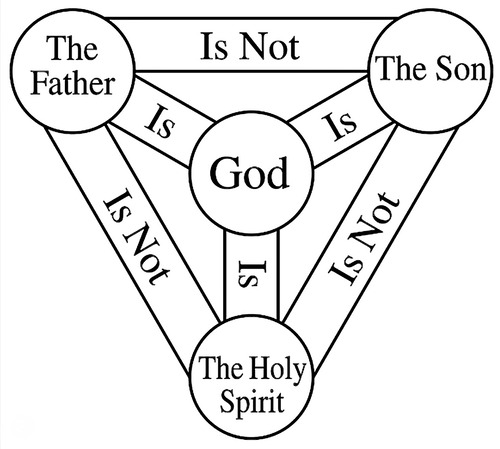When Does Empathy Become Sin? Join the Conversation
Empathy, these days, is universally celebrated as a cardinal virtue. We’re consistently encouraged to “walk in another’s shoes,” to fully identify with the feelings and experiences of others, and to validate their emotional ‘reality’ without judging them. This cultural emphasis on empathy seems, at first glance, to align perfectly with Christian values of love and compassion. But, does it?
Within Reformed theological circles, a hot conversation has emerged of late, questioning whether modern conceptions of empathy may actually lead Christians astray. Authors such as Joe Rigney have gone so far as to speak of “the sin of empathy,” suggesting certain forms of emotional identification with others can compromise biblical truth and wisdom…
A CRITIQUE OF EMPATHY
The critique of empathy within Reformed circles hinges on a crucial distinction: Compassion, as portrayed in Scripture, involves genuine concern for the suffering of others while maintaining moral clarity and truth. By contrast, modern empathy often demands complete emotional identification with another’s perspective, even requiring the suspension of moral judgement.
Joe Rigney, in his book, The Sin of Empathy, articulates this distinction as the difference between “feeling-with” (empathy) and “feeling-for” (compassion). When we merely “feel with” others, we risk being pulled into their interpretive framework, potentially validating sinful attitudes or false beliefs in our attempt to identify with their emotions.
Other Reformed thinkers such as Kevin DeYoung and Douglas Wilson similarly warn us uncritical empathy can function as a Trojan horse, allowing unbiblical ideas to bypass our theological defences through emotional appeals. The core concern isn’t with caring deeply for others, but with allowing that care to override biblical discernment.
BIBLICAL FOUNDATIONS
Christ’s example is our clearest model for balancing compassion with truth. In the Gospels, we see Jesus demonstrating profound compassion: He weeps with Mary and Martha at Lazarus’s tomb (John 11:35), heals the suffering, and shows mercy to the outcast. Yet in showing compassion, He never compromises truth or fails to address sin.
Consider how Jesus responds to the woman caught in adultery—He protects her from unjust punishment while still commanding, “Go and sin no more” (John 8:11). His compassion doesn’t validate her sin; it offers a path to redemption through truth.
We also find instances when Jesus firmly maintains truth despite others’ feelings. When Peter attempts to dissuade Him from the cross, Jesus rebukes him sharply: “Get behind me, Satan!” (Matthew 16:23). His love for Peter doesn’t prevent Him from identifying dangerous error.
The Good Samaritan parable (Luke 10:25-37) offers perhaps the clearest biblical model of compassion. The Samaritan doesn’t merely feel the wounded man’s pain; he takes concrete action to help while maintaining his distinct identity and perspective. This represents compassion rather than identity-merging empathy.
WHEN EMPATHY CAN LEAD US ASTRAY
When empathy functions as complete emotional identification, it can lead believers to compromise moral truth. For instance, in pastoral counselling, empathising with someone’s sense of victimhood might prevent us from helping them recognize their own sinful responses or responsibility.
Modern empathy often prioritises validating someone’s feelings over helping them align those feelings with biblical truth. Yet Scripture teaches that our hearts can be deceptive (Jeremiah 17:9), and our feelings, while real, are not always reliable guides to truth.
This problem becomes particularly acute in current cultural conversations. When discussing issues like sexual ethics, gender identity, or marriage, Christians who prioritise empathy over biblical teaching may find themselves gradually adopting worldviews at odds with Scripture—all in the name of love and understanding.
Without truth as its anchor, empathy can inadvertently reinforce sinful patterns rather than pointing toward Christ’s redemptive work. True love, as defined biblically, “rejoices with the truth” (1 Corinthians 13:6) rather than setting truth aside for the sake of emotional solidarity.
A BIBLICAL ALTERNATIVE: COMPASSION GUIDED BY TRUTH
The biblical alternative to untethered empathy is compassion guided by truth
- True compassion is firmly grounded in God’s character. Throughout Scripture, God is described as “merciful and gracious, slow to anger, and abounding in steadfast love and faithfulness” (Exodus 34:6). God’s compassion never contradicts His holiness or truth.
- True compassion maintains God’s revealed truth as a fixed reference point. Unlike secular empathy, which often treats the sufferer’s perspective as unquestionable, biblical compassion offers both presence in suffering and the transformative hope of the gospel. “The wisdom from above is first pure, then peaceable, gentle, open to reason, full of mercy and good fruits, impartial and sincere” (James 3:17).
- Christ Himself embodies this perfect union of truth and compassion. He never minimises sin or suffering, yet always offers hope beyond both. His interactions with the Samaritan woman (John 4), Zacchaeus (Luke 19), and countless others demonstrate how genuine love addresses reality as it is while pointing toward redemption.
CONCLUSION: WHEN DOES EMPATHY BECOME SIN?
The Reformed critique of untethered empathy isn’t a call to cold-hearted indifference but an invitation to a more robust, Christ-like compassion. By distinguishing between biblical compassion and secular empathy, we protect both truth and love from being set against each other.
The challenge for Reformed believers today is to cultivate hearts that break with those who suffer while maintaining minds anchored in biblical truth. This means weeping with those who weep (Romans 12:15) without abandoning the framework of Scripture that gives meaning to suffering and points to ultimate hope. Unlike empathy that’s devoid of truth, genuine Christian compassion offers something far better: the loving presence of believers who care deeply. They point steadfastly to the God who offers not just validation, but transformation and redemption.
WHEN DOES EMPATHY BECOME SIN? RELATED FAQs
When would it be sin for a Christian to empathise with someone undergoing gender confusion? It becomes sinful when empathy leads us to affirm or validate a false identity that contradicts God’s created order rather than compassionately pointing toward biblical truth. Christians can and should show genuine care and concern for those experiencing gender confusion, but this care must not extend to affirming beliefs that contradict Scripture’s teaching on God’s design for male and female. True compassion seeks the person’s ultimate good according to God’s Word, not merely emotional validation.
- When a friend is deeply remorseful over sin, how does one provide pastoral care without letting empathy become sin? Pastoral care for the remorseful sinner involves walking the fine line between affirming godly sorrow that leads to repentance and enabling self-loathing that denies the sufficiency of Christ’s grace. Listen with genuine compassion while gently directing them to the gospel’s promises of forgiveness and restoration rather than remaining stuck in shame or guilt. Remind them the conviction of sin is from the Holy Spirit, but condemnation is not (Romans 8:1). Point them toward the hope of Christ’s work rather than merely validating feelings of worthlessness or despair.
- What’s the difference between biblical compassion and secular empathy? Biblical compassion involves caring deeply for others while maintaining moral clarity grounded in Scripture. Secular empathy often demands complete emotional identification with another’s perspective, potentially requiring us to suspend biblical judgment or validate feelings that may stem from sinful desires. Christ demonstrated perfect compassion by meeting people in their suffering while never compromising truth.
Doesn’t the Bible call us to “weep with those who weep”? Yes, Romans 12:15 calls believers to “weep with those who weep,” but this must be understood within the broader biblical context of truth and wisdom. We can share in someone’s genuine pain and suffering without endorsing false beliefs or sinful desires that may be intertwined with their suffering. Biblical weeping maintains a redemptive perspective that points toward Christ’s healing and restoration.
- How can I show love to someone without embracing sinful empathy? Love them by being present in their suffering while gently bringing biblical truth to bear on their situation. Listen attentively and acknowledge genuine pain, while prayerfully discerning when and how to speak truth that points to Christ. Remember that true love “rejoices with the truth” (1 Corinthians 13:6) and seeks the person’s spiritual good, not merely their emotional comfort.
- Didn’t Jesus empathise with sinners? Jesus showed profound compassion for sinners without ever affirming their sin or compromising truth. He ate with tax collectors and sinners (Mark 2:15-17), but always with the redemptive purpose of calling them to repentance and transformation. Christ’s example shows us how to love sinners deeply while maintaining a clear witness to God’s holiness and the call to “go and sin no more” (John 8:11).
How do I know when my empathy has crossed into sin? Your empathy has likely crossed into sin when you find yourself reluctant to bring Scripture to bear on a situation or when you begin to question clear biblical teaching because of your emotional identification with someone. If you catch yourself thinking love requires setting aside biblical truth, or if you’re prioritising someone’s immediate emotional comfort over their spiritual health, your empathy has become untethered from biblical wisdom.
- Is it wrong to deeply feel for others who are suffering? No, feeling deeply for others’ suffering is part of Christ-like compassion and reflects God’s character. The concern is not with the depth of feeling but with maintaining biblical discernment while feeling deeply. Reformed theology doesn’t call for emotional detachment, but rather for emotions guided by biblical truth and wisdom so that our compassion leads to genuine spiritual good rather than merely affirming someone in potentially destructive patterns.
WHEN DOES EMPATHY BECOME SIN? OUR RELATED POSTS
Editor's Pick

What Makes a Godly Mom? A Scripture-Backed Guide
In our culture’s confusion about gender roles and parenting, the timeless question remains: what makes a godly mother? While secular [...]

Paul’s Mandate for Men: Headship Or Servant Leadership? Or Both?
Modern Christianity has fallen into a trap. We've created an either/or battle between "headship" and "servant leadership," as if these [...]

Should We Stop Using Male Pronouns for God? Why Do We Say No?
A friend of ours arrived eagerly at his first theology class in seminary. But he quickly discovered something troubling: the [...]

Did Old Testament Law Force Women to Marry their Rapists?
**Editor’s Note: This post is part of our series, ‘Satan’s Lies: Common Deceptions in the Church Today’… Viral misinformation abounds [...]

From Danvers To Nashville: Two Statements, One Biblical Vision
30 years separate the Danvers Statement on Biblical Manhood and Womanhood (1987) and the Nashville Statement on Human Sexuality (2017). [...]

The Nashville Statement: Why Affirm It Despite Media Backlash?
WHY DO REFORMED CHRISTIANS STAND BY THIS STATEMENT ON MARRIAGE AND GENDER? When the Nashville Statement was released in 2017, [...]

Who Is Belial? Solving The 2 Corinthians 6:15 Mystery
Belial: This name from the pages of Scripture chills the soul. Who is this mysterious figure Paul invokes in 2 [...]

Celibacy Or Castration: What Jesus Really Means in Matthew 19:12
One of Scripture's most shocking misinterpretations led theologian Origen to castrate himself in the third century. His tragic mistake? Taking [...]

Philippians 4:13: Did Paul Really Mean We Can Do ALL Things?
"I can do all things through Christ who strengthens me." It's on gym walls, graduation cards, and motivational posters everywhere. [...]

The Ordinary Means of Grace: Why Are They Indispensable?
ORDINARY MEANS FOR EXTRAORDINARY TRANSFORMATION What if God's most powerful work in believers' lives happens through the most ordinary activities? [...]
SUPPORT US:
Feel the Holy Spirit's gentle nudge to partner with us?
Donate Online:
Account Name: TRUTHS TO DIE FOR FOUNDATION
Account Number: 10243565459
Bank IFSC: IDFB0043391
Bank Name: IDFC FIRST BANK






